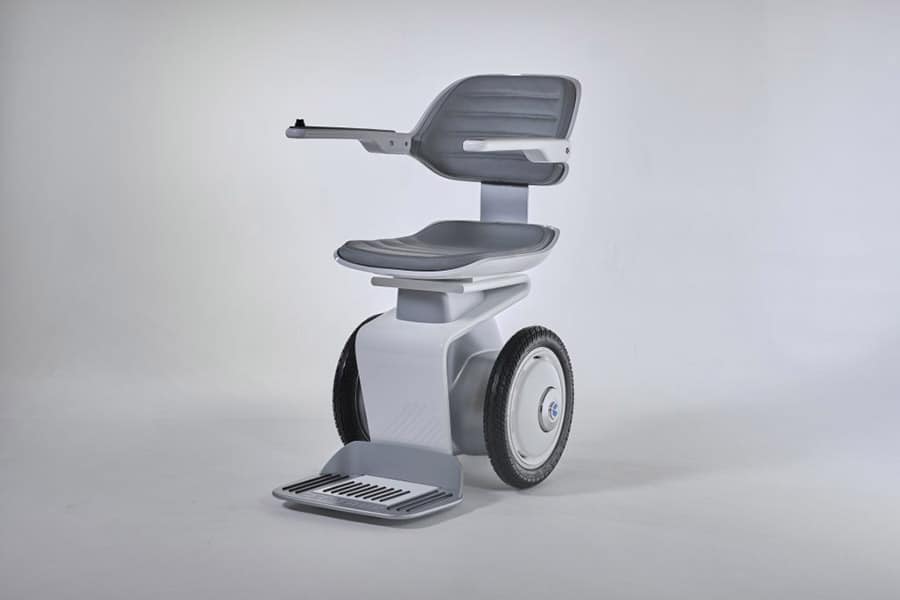Innovative COVID-safe electric wheelchair awarded £175k government funding

A pioneering electric wheelchair from Centaur Robotics, designed to enable social distancing and built with COVID-resistant materials, has been awarded a UK government grant of £175,000.
Boasting an attractive design, the two-wheeled, self-balancing Centaur is a personal electric vehicle that helps protect users and staff in the care industry from diseases like coronavirus.
Its collision avoidance software – which Centaur Robotics says is the first to be installed in a wheelchair – helps enhance social distancing, particularly by reducing contact between carers and residents.
The £175,000 investment will fund research to further identify and develop plastics and other materials that viruses find it difficult to live on and will make the Centaur easier to decontaminate, the UK-based mobility company says.
With a seat that is height-adjustable and can raise occupants to eye-level, the wheelchair helps prevent transmission as the lower the user is, the greater the risk of infection from aerosol spread disease.
The Centaur is also driver-operated and fits into the space of a dining chair. This helps minimise contact between carers and residents, further reducing the risk of catching the virus.
Chris Hay, Chief Executive Officer of Centaur Robotics, said: “It’s really important that people move independently of staff. If they eat in a dining room for example, they move on their own and don’t have to be helped in and out of another chair. They stay in the Centaur, reducing contact and the likelihood of infection, but increasing socialisation which is so important for mental health.”
Innovate UK, the government’s innovation agency, gave Centaur Robotics the grant as part of an initiative to help businesses recover in a sustainable way from the economic effects of COVID-19.
The £175,000 grant is the maximum amount payable from the £10 million Sustainable Innovation Fund, run by UK Research and Innovation. Centaur Robotics will contribute an additional £87,500 to the project.
State-of-the-art plastic materials, which are easy to maintain, clean, reuse and recycle, will be incorporated into the Centaur, the company underlines. Batteries will be made from recycled materials as part of Centaur Robotics’ sustainability goals.
Furthermore, the two-stage project will assess how the Centaur fits into the care industry and monitor the impact on users.
Centaur Robotics developed the innovative electric wheelchair to counter the stigma surrounding wheelchair us, giving users both independence and dignity.

